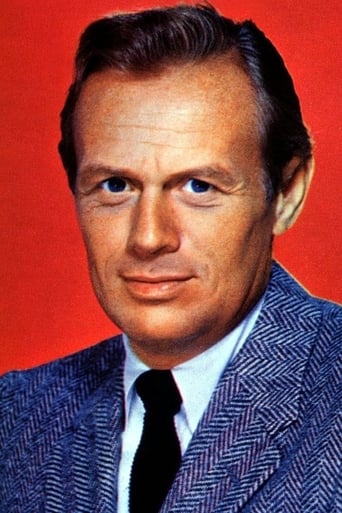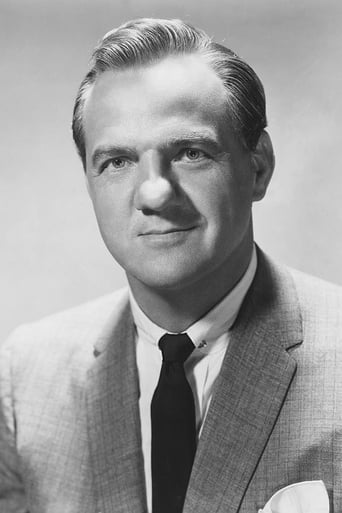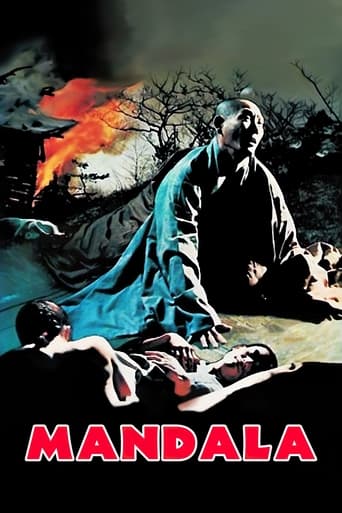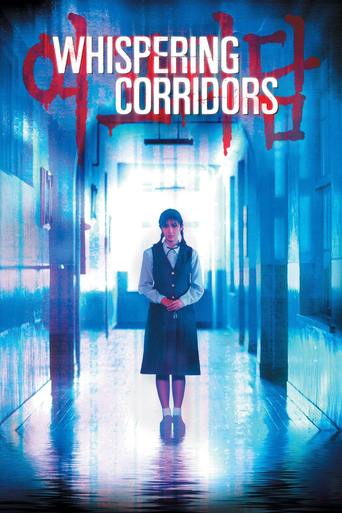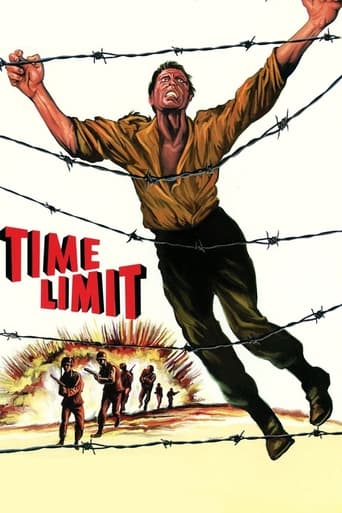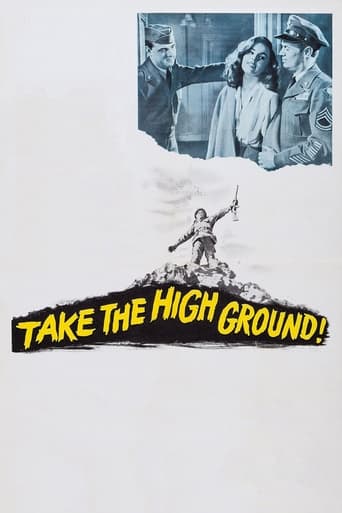
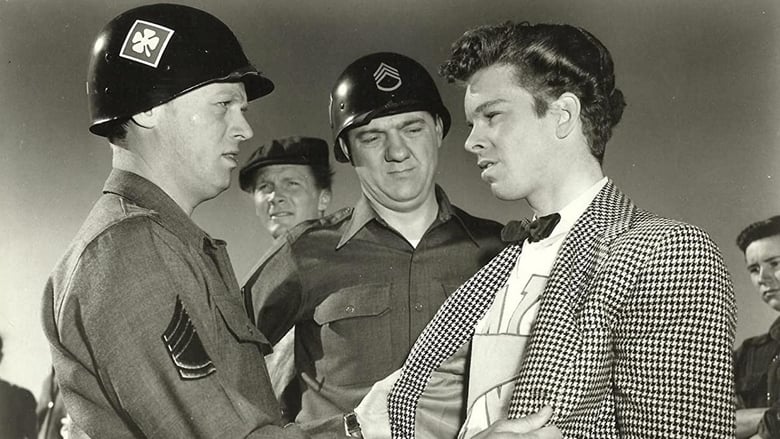
Take the High Ground! (1953)
Sgt. Thorne Ryan, who once fought bravely in Korea, now serves as a hard-nosed drill instructor to new Army recruits at Fort Bliss, Texas. But is he really the man he is often described as? His fellow instructor, and friend helps him to face the ghosts of his past experiences in Korea. One night in a bar across the border in Juarez, Mexico, Sgt. Ryan meets a lady who begins to turn his life around. Will this be enough to help him deal with the past? Or will he continue to be so hard on his troops?
Watch Trailer
Cast


Similar titles
Reviews
Excellent, Without a doubt!!
I wanted to like it more than I actually did... But much of the humor totally escaped me and I walked out only mildly impressed.
It's easily one of the freshest, sharpest and most enjoyable films of this year.
There are moments in this movie where the great movie it could've been peek out... They're fleeting, here, but they're worth savoring, and they happen often enough to make it worth your while.
In reviewing this film I can only go by my experiences as a weekend warrior doing my basic training in July, August, and September of 1971 in that garden spot of the earth, Fort Polk, Louisiana. Take the High Ground was not anything like I remember basic training.But one has to remember at the time this was post Korea which ended in a stalemate, but it was a conventional war as we knew them. It was not Vietnam, a jungle guerrilla war where we kept pouring draftees into an endless pit. The draft at that time was an unwelcome, but accepted as still necessary for the country's defense.Richard Widmark is a veteran of Korea now assigned state side to train the troops to go overseas. The film is about one of his training cycles and the men of the platoon he has to train. They're the usual kind you would find in just about any war film from the previous decade. One thing I will praise Take The High Ground for is the fact that MGM recognized our army was now an integrated one with the presence of William Hazard as a black recruit in the platoon. It was in keeping with the spirit of the times which were a changing.But I will say that a recruit like Russ Tamblyn would have been cured of his smart mouth from day one. Richard Widmark would have not risked death or becoming a eunuch in order to give Jerome Courtland confidence with a weapon. And no way would have he worried so much about Robert Arthur deserting. He's have just let the MPs deal with him.Of course being shot in and around Fort Bliss and El Paso, Texas did give Take the High Ground good authenticity. But view it as an army recruiting film and you can certainly understand why the government so eagerly gave cooperation back in the day.I do remember the drill sergeants having their little conflicts which you could pick up on when you weren't worried about them getting on your case for something which was 95% of the time. But there ain't no way that Karl Malden would have slugged Widmark out in the open during training in front of several witnesses among the recruits. Both would have realized that would have undermined authority, something the military just doesn't let happen.I wish I could have said something better about Take The High Ground because I certainly like its talented cast, it's talented director Richard Brooks, even the silly theme by Dimitri Tiomkin and Ned Washington, fresh from their Oscar a year before for High Noon. The film actually got an Oscar nomination for Best Screenplay and story by Millard Kaufman. It must have been for Kaufman's vivid imagination.
I could tell this plot less film would go downhill from the beginning. In the opening scene we see a platoon of soldiers attacking a North Korean position, and one of them casually stops for a drink and is shot by an enemy soldier with a U.S. Army M1 rifle! That a real soldier would do this under fire, and that the props department couldn't afford an AK-47 speaks volumes about this film.Then we go to Fort Bliss for what is supposed to be boot camp but is actually a summer camp for teenagers. I say this as an Army veteran.Richard Widmark was on loan to the studio that made this film, but I think he should have remained with his contract studio, for I don't believe "Take the High Ground" was a milestone of his career.
The 1957 Jack Webb classic, "The D.I." bears a close relationship to "Take the High Ground," from its general theme to the presence of an inept recruit, to the main character's romance with a young woman who lives close to the base.In the Jack Webb (Marine) version, Gunnery Sergeant Jim Moore (Webb) takes on a platoon with the usual selection of raw recruits, but one who is particularly troublesome. In the Richard Widmark (Army) version, the same thing happens, with a troublesome and troubled recruit. In both versions, the recruit makes an attempt to go over the wall, and in both versions, the tough but compassionate training sergeant stops the escape and molds the recruit into shape.In both versions, the love interest is a woman who has been emotionally scarred by a former romance with a serviceman who had been killed in combat.In both versions, there is a fellow training sergeant that frustrates and annoys the main character into a showdown fistfight.At the end of both movies, the cast is reprised, with their names. The only difference is that in the MGM version (Take the High Ground), the entire platoon are actors. In the Mark VII version (The D.I.), the platoon was played by real Marines. ~~~~~~~~~~~~~~~~~~~~~~~~~~~~~' For those unfamiliar with military lingo, "boot camp" is generally used to refer to Navy recruit training (or Marine training), whereas the Army uses the term "Basic Training." In a similar vein, the Navy refers to combat simulation encampments as "maneuvers," whereas the Army uses the term "bivouac."Both movies are excellent films.
The story could hardly be more familiar. A barracks worth of raw recruits from varying backgrounds arrive at Fort Bliss to go through basic training in the infantry. Widmark is the sterner of the two drill sergeants, Malden the more human, but both are friends, until . . . . Two plotlines are developed simultaneously. The first involves the mostly comic tribulations of the new grunts. They are by turns humiliated, worked to exhaustion, given to pillow fights and practical jokes on one another, as the sergeants attempt to "help you rid yourself of your winsome civilian ways". We are thankfully spared any involvement on their part with young women outside the camp. (The sort of thing, among other things, that positively ruined "Battle Cry.") Of course there has to be a romance, but it is left to Widmark and Malden, the two combat veterans who come to blows over Elaine Stewart, the pride of Montclair, New Jersey, as Julie. She's clearly more attracted to Widmark who is, after all, the male lead, but he professes to despise her because she hangs around in seedy juke joints, drinks, and makes out with soldiers like him. Malden is attracted to her too and, at least for one night, enjoys her favors, which Widmark notices. It annoys him. Widmark and Malden grow somewhat apart. Their irritation with one another increases as Widmark bears down harder on the recruits. His morality is lofty, of the "Nothing you experience in basic training will be as tough as combat," which may be true but which also provides a drill instructor with a license for outright sadism. Not to worry. The boys shape up and do some close order drill at the train platform before shipping out, leaving a new incoming group of recruits staring in awe. Julie leaves town, tearfully, by a train as well, no doubt to recapture her dignity. Widmark and Malden encounter each other on a dark street while returning from the train station, and Malden wordlessly offers Widmark a conciliatory cigarette. The processing machine grinds along and all is well. Widmark's character is oddly written. He quotes Elizabeth Barrett Browning while sneering that he's never read her. The only Browning my drill instructor ever heard of was made of metal.


